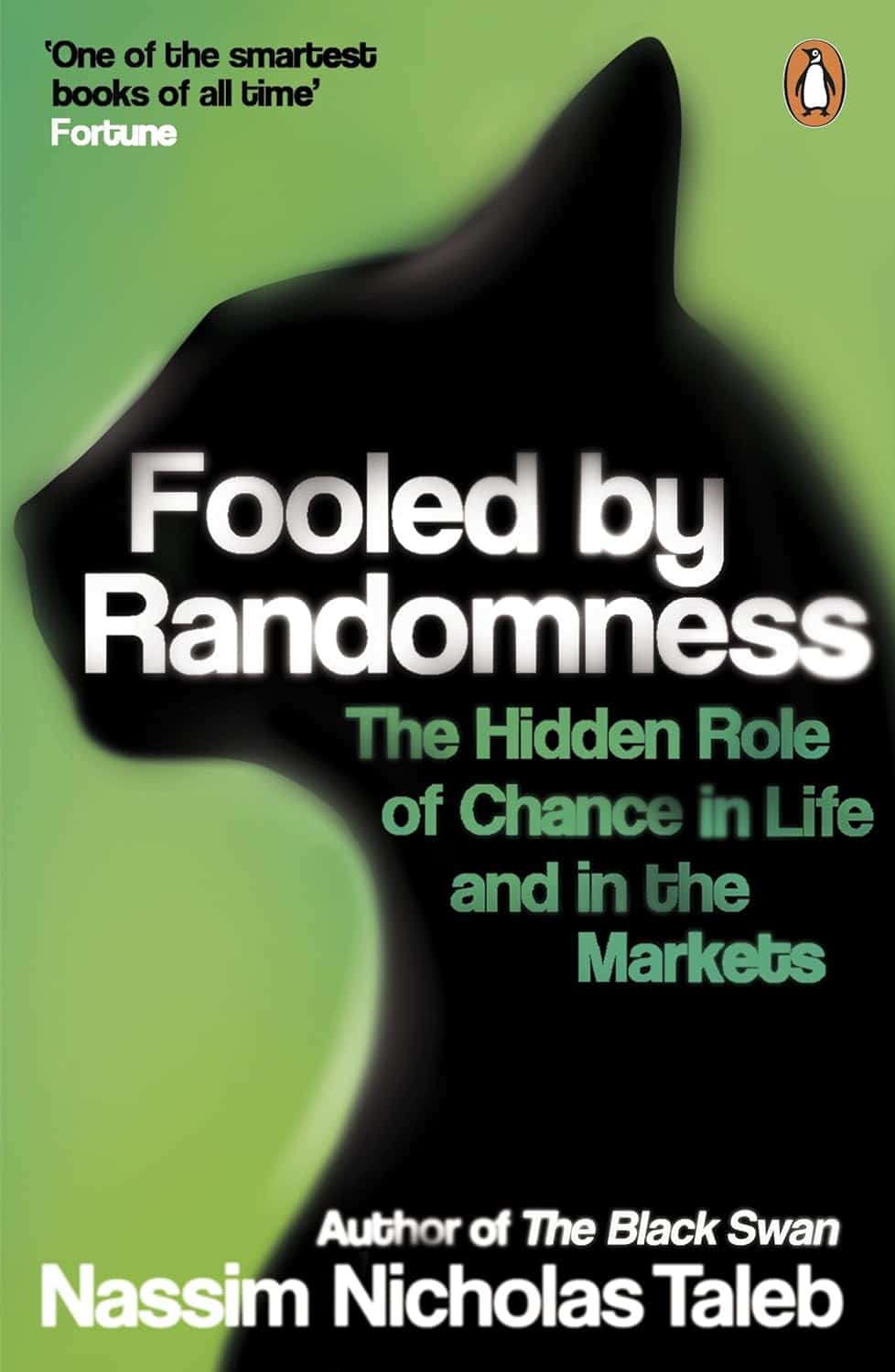Overview : Fooled by Randomness
-
Book Title: Fooled by Randomness
-
Author: Nassim Nicholas Taleb
-
Publication Date: October 2001
-
Rating: 4.5
-
price: $17.95
-
Pages: 262
About the Author
Nassim Nicholas Taleb, a former trader turned scholar, explores the impact of chance and uncertainty on our lives in Fooled by Randomness. Known for his insights on risk and probability, Taleb challenges conventional thinking, highlighting how luck often influences success more than skill.
Introduction
Unveiling the Hidden Role of Chance in Finance In the vast sea of financial literature, Nassim Nicholas Taleb's "Fooled by Randomness: The Hidden Role of Chance in Life and in the Markets" stands out as a lighthouse, illuminating the often-overlooked impact of randomness on our financial decisions and life outcomes. This groundbreaking work challenges conventional wisdom about success, failure, and the nature of risk in the financial markets.
Book Summary: Decoding the Randomness in Finance
Taleb, a former trader with a philosophical bent, takes readers on an intellectual journey through the labyrinth of probability, risk assessment, and decision-making in finance. He argues that we frequently misattribute success to skill and failure to incompetence, overlooking the significant role that chance plays in our lives and investments.
"If you're so rich, why aren't you so smart?" - Nassim Nicholas Taleb
This provocative question encapsulates Taleb's central thesis: success in the financial markets, and in life, is often more a product of luck than we care to admit. Through a series of engaging anecdotes and rigorous analysis, Taleb exposes the fallacies that plague our understanding of risk and probability.
Analysis of Themes: Unraveling Financial Misconceptions
1. Survivorship Bias in Investing
Taleb introduces the concept of survivorship bias, explaining how we often focus on successful investors or companies while ignoring the multitude that failed under similar circumstances. This cognitive bias can lead to flawed investment strategies and unrealistic expectations in personal finance.
2. Black Swan Events and Market Trends
The book lays the groundwork for Taleb's famous "Black Swan" theory, which describes rare, unpredictable events with severe consequences. This concept is particularly relevant in today's volatile markets, where cryptocurrencies and emerging technologies can cause sudden, drastic shifts in the financial landscape.
3. The Illusion of Skill in Trading
Taleb challenges the notion that successful traders possess superior skills, arguing instead that many are simply beneficiaries of randomness. This perspective is crucial for individual investors to consider when evaluating their own performance or choosing financial advisors.
Writing Style: Erudite yet Accessible
Taleb's writing is a unique blend of scholarly insight and street-smart practicality. He seamlessly weaves complex mathematical concepts with entertaining anecdotes from his trading days, making the book both informative and engaging for readers interested in finance and economics.
Strengths and Weaknesses: A Balanced Assessment
Strengths:
- Offers a fresh perspective on risk and probability in finance
- Challenges readers to think critically about success and failure in investing
- Provides valuable insights for personal finance and risk management
Weaknesses:
- Some arguments can be repetitive
- Taleb's assertive tone may be off-putting to some readers
- The book's skepticism towards financial experts may be seen as extreme by some
Comparison to Other Works: A Unique Voice in Financial Literature
While "Fooled by Randomness" shares themes with books like Burton Malkiel's "A Random Walk Down Wall Street," Taleb's work stands out for its philosophical depth and iconoclastic approach. Unlike more conventional finance books that focus on strategies and techniques, Taleb's work encourages a fundamental reevaluation of how we perceive success and failure in the markets.
Highlights from Fooled by Randomness by Nassim Nicholas Taleb
Role of Chance: Life outcomes are heavily influenced by randomness, more than most people recognize.
Survivorship Bias: Success stories are often celebrated without acknowledging the role of luck, overlooking the many failures.
Illusion of Skill: People tend to mistake luck for skill, especially in fields like finance and investing.
Cognitive Biases: Humans are prone to biases that lead us to see patterns where none exist, misinterpreting randomness.
Humility in Uncertainty: Recognizing the role of chance promotes humility and cautious decision-making.
Embrace Unpredictability: Accepting randomness helps in avoiding overconfidence and navigating complex systems.
Conclusion: A Must-Read for Financial Thinkers
"Fooled by Randomness" is an essential read for anyone involved in investing, personal finance, or decision-making under uncertainty. Taleb's insights challenge us to embrace humility, acknowledge the limits of our knowledge, and develop more robust strategies for navigating the unpredictable waters of finance and life. By recognizing the role of randomness, readers can cultivate a more nuanced understanding of market trends, make more informed investment decisions, and develop a healthier relationship with financial success and failure.
Ready to revolutionize your approach to finance and investing?
Get your copy of "Fooled by Randomness" today and start seeing the markets through a new lens! In conclusion, this article has provided an overview of the topic at hand.




